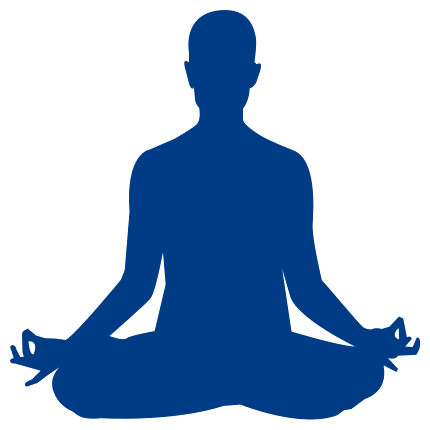I got acquainted with Dr. Sara Gottfried, MD while listening to a podcast featuring her New York Times bestselling book The Hormone Cure. The book’s title wouldn’t have piqued my interest had I seen it on the library shelf. But when Dr. Gottfried shared her struggle with hormonal imbalance, it set me to wondering about the ways in which I might be affected as well.
Our bodies produce dozens of hormones. They’re chemical messengers that influence behaviors, emotions, brain chemicals, and our immune system. They also play a key role in turning food into fuel. When working well together, they operate as a powerful, graceful, and effective team. When they’re out of kilter, they can produce weight gain, mood swings, fatigue, low libido, and other unpleasant conditions. It’s not a bad thing. It’s simply the body’s way of telling us that something is wrong. And we need to listen.
 Take cortisol, for example. It plays a role in hunger cravings, digestion, blood pressure regulation, sleep/wake patterns, physical activity, and our capacity to cope with stress. If we’re hiking in the woods and encounter a grizzly bear, cortisol supports our flight-or-fight response by: (i) raising our blood sugar to give us a ready supply of fuel; (ii) increasing our blood pressure to make us alert and ready to respond; and, (iii) deactivating the body’s self-repair protocols to conserve energy. It’s a wonderfully protective mechanism when called upon infrequently. It’s not so helpful when activated regularly in the fast-paced environment in which we live.
Take cortisol, for example. It plays a role in hunger cravings, digestion, blood pressure regulation, sleep/wake patterns, physical activity, and our capacity to cope with stress. If we’re hiking in the woods and encounter a grizzly bear, cortisol supports our flight-or-fight response by: (i) raising our blood sugar to give us a ready supply of fuel; (ii) increasing our blood pressure to make us alert and ready to respond; and, (iii) deactivating the body’s self-repair protocols to conserve energy. It’s a wonderfully protective mechanism when called upon infrequently. It’s not so helpful when activated regularly in the fast-paced environment in which we live.
Prolonged exposure to high cortisol isn’t good for you. It can render you sleepless even if you are exhausted and have been dragging around all day. It restricts blood flow in a way that can alter brain function, decrease emotional intelligence, and accelerate age-related cognitive impairment. Excess cortisol makes weight accumulate around the midsection. It thwarts the immune system, making you susceptible to colds and infection. It can make you feel anxious, and pretty much kills the sex drive. And should your adrenal gland grow weary of pumping out all that cortisol, it may not be able to rally the troops to produce some more when you really need it.
Dr. Gottfriend’s guide to hormone balance helps women increase their energy, resilience, vitality, and sensuality through science-based natural therapies. She provides treatment protocols for 7 common conditions that affect women: high cortisol, low cortisol, low progesterone, excess estrogen, low estrogen, excess androgens, and low thyroid. The Appendices in the back of the book provide the details.
 She pursues treatment in three phases. Lifestyle design is the preferred protocol as it addresses the underlying causes of the condition while taking advantage of the body’s natural ability to heal itself. For example, folks with chronically high cortisol need to make lifestyle adjustments that alleviate stress and promote relaxation. Some adjustments may be relatively easy to incorporate – e.g., adopting a healthy diet, learning to meditate, and/or signing up for yoga classes. Others may prove more challenging – e.g., changing jobs, adjusting commute patterns, and/or downsizing to relieve financial pressure.
She pursues treatment in three phases. Lifestyle design is the preferred protocol as it addresses the underlying causes of the condition while taking advantage of the body’s natural ability to heal itself. For example, folks with chronically high cortisol need to make lifestyle adjustments that alleviate stress and promote relaxation. Some adjustments may be relatively easy to incorporate – e.g., adopting a healthy diet, learning to meditate, and/or signing up for yoga classes. Others may prove more challenging – e.g., changing jobs, adjusting commute patterns, and/or downsizing to relieve financial pressure.
Herbal therapies may be used to support the body’s healing process on either a short-term or long-term basis. For example, Vitamin C supplements may be leveraged to support the body’s immune response. Other herbal remedies have been shown to reduce fatigue and stress, lower blood sugar, improve cognition, and confer a sense of calm. Some may have unpleasant side effects and/or interactions with other medications. Hence, it may be advisable to pursue their use under medical supervision. If the condition warrants it, a doctor may prescribe bioidentical hormone supplements.
I confess that I struggle with the lifestyle changes recommended by Dr. Gottfried and others to help my body do its best work in service of my long-term health. It’s why I’ve taken an interest in the science of behavioral change, habit formation, and positive psychology. I’ve found that I have more success when taking sustainable “baby steps” – one new one each month – rather than attempting sweeping change on which I’ll likely falter. I’ve also surrounded myself with a team of family and friends who support my efforts and provide encouragement.